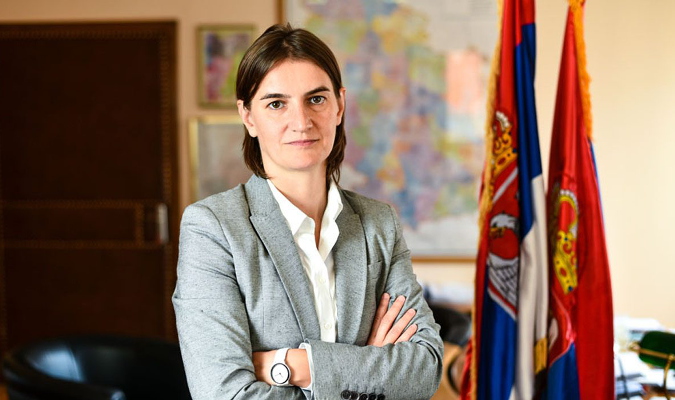Serbia makes history by electing its first openly gay and female Prime Minister
In what has been dubbed a landmark progression for gender equality, the conservative Balkan nation elected its first female and first openly gay head of government.Date:

"It is an honour to serve Serbia to make it change for the better,” said the new Serbian Prime Minister Ana Brnabic when presenting the programme of her new government on 29 June.
Serbia shows signs of change by appointing a female and gay premier, which marks a symbolic victory for gender equality in the patriarchal society.
In Serbia, women continue to face a number of problems in exercising their guaranteed rights and homophobia is widespread with almost half the population considering homosexuality an illness.
According to UN Women in Serbia, the elections of the first female and openly gay Prime Minister marks a milestone for Serbia’s progress towards gender equality. UN Women hopes that the new government will further support gender equality mechanisms and the adoption of the new Law on gender equality.
Ms. Brnabic stresses the importance of gender equality: "Serbia has become the first country outside the EU to introduce the Gender Equality Index. The data shows that Serbia lags behind EU Member States in all aspects of gender equality, with the exception of the domain of power, and with serious gaps in domains of work and money. Therefore, we have introduced gender-responsive budgeting and set up ambitious goals, such as achieving 30 per cent of women in managerial positions in enterprises by 2020."
Gender-responsive budgeting (GRB) analyzes budgets through a gender equality lens and ensures that they respond equally to the needs of women, men, boys and girls. Since 2015, UN Women has been one of the most vocal advocates of GRB in Serbia and has been training women parliamentarians in the Provincial Government, women’s civil society organizations and gender experts in this area. UN Women trained a total of 580 public sector employees on GRB in close cooperation with the Ministry of Finance, the Coordination Body for Gender Equality, the Finance Secretariat and the Secretariat for Social Policy, Demography and Gender Equality of Autonomous Province of Vojvodina.
So far, 35 budget users have analyzed and planned their budgets for 2017 from a gender equality perspective and 14 others are planning to do the same for their 2018 budgets.
Born in Belgrade in 1975, Brnabic obtained a master’s degree in marketing from Hull University, UK. According to her biography published on the web portal of the Serbian government, she has more than ten years of experience in working with international organisations, foreign investors, local governments and the public sector in Serbia.
“It is important that we make a social agreement on what we can and must achieve together for Serbia to become a successful country,” stressed Brnabic in her programme and pledged to modernize the Serbian society.
Serbian President Aleksandar Vucic is confident that Brnabic, a staunch supporter of the EU, has necessary skills and qualifications to achieve the goal. “She will be working, together with all other ministers [as a non party person], on a better life for Serbia,” Vucic told a press conference on 29 June, adding that Serbia faces “many challenges and problems.”
Brnabic’s appointment has divided Serbian political scene with many denouncing it with sexist, misogynistic and homophobic comments. For instance, Dragan Markovic, the leader of one of the smaller parties in the President’s coalition, said that the new premier “should be a family man who knows what it means to have children.”
Despite myriad of negative reactions, it is for sure that Serbia has entered into a new era for gender equality.